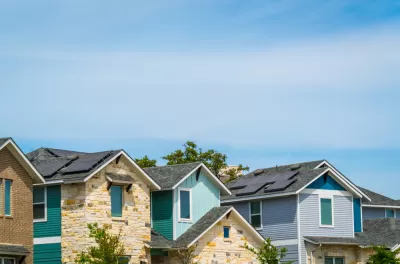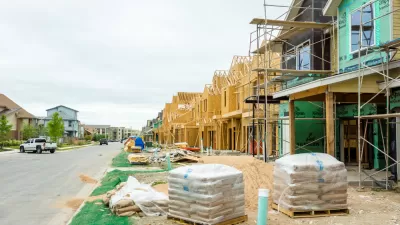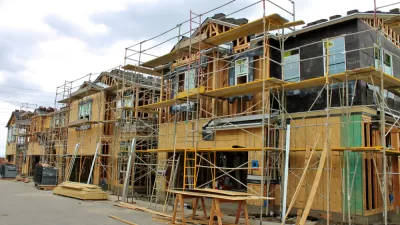An expansion of the city’s vertical mixed-use (VMU) affordable development program is the furthest along of a package of reforms intended to spur the construction of affordable housing.

The Austin City Council is in the process of drafting, amending, and weighing multiple changes to the city’s zoning code in the hopes of spurring new affordable housing developments without triggering too much political controversy along the way. The city is faced with an affordability crisis that rivals anything in California or New York.
According to an article by Ben Thompson for the Community Impact Newspaper, those measures include a height bonus for affordable housing developments, parking requirement reductions, ADU streamlining, and more.
Closest to the finish line, according to Thompson, is an expansion of the city’s vertical mixed-use (VMU) affordable development program. “The VMU change would create a new category within the program that offers development incentives such as increased height in exchange for affordable housing. Proposed by District 5 Council Member Ann Kitchen late last year, an update called VMU2 would increase the allowed height for participating projects if more affordable units are offered.”
According to data from the city cited in the article, the VMU is the second-most effective development incentives, “second only to the University Neighborhood Overlay, which has spurred denser construction in the West Campus area.” According to the data, the VMU has created nearly 6,800 total housing units. Another 8,900 units are planned or under construction—of which 1,000 will be available at an affordable price.
More details on the other zoning changes under consideration as development incentives can be found in the source article, linked below.
FULL STORY: Council looks to 'push the envelope' on Austin affordable housing policies ahead of June votes

Planetizen Federal Action Tracker
A weekly monitor of how Trump’s orders and actions are impacting planners and planning in America.

Congressman Proposes Bill to Rename DC Metro “Trump Train”
The Make Autorail Great Again Act would withhold federal funding to the system until the Washington Metropolitan Area Transit Authority (WMATA), rebrands as the Washington Metropolitan Authority for Greater Access (WMAGA).

The Simple Legislative Tool Transforming Vacant Downtowns
In California, Michigan and Georgia, an easy win is bringing dollars — and delight — back to city centers.

The Small South Asian Republic Going all in on EVs
Thanks to one simple policy change less than five years ago, 65% of new cars in this Himalayan country are now electric.

DC Backpedals on Bike Lane Protection, Swaps Barriers for Paint
Citing aesthetic concerns, the city is removing the concrete barriers and flexposts that once separated Arizona Avenue cyclists from motor vehicles.

In These Cities, Most New Housing is Under 441 Square Feet
With loosened restrictions on “micro-housing,” tiny units now make up as much as 66% of newly constructed housing.
Urban Design for Planners 1: Software Tools
This six-course series explores essential urban design concepts using open source software and equips planners with the tools they need to participate fully in the urban design process.
Planning for Universal Design
Learn the tools for implementing Universal Design in planning regulations.
Smith Gee Studio
City of Charlotte
City of Camden Redevelopment Agency
City of Astoria
Transportation Research & Education Center (TREC) at Portland State University
US High Speed Rail Association
City of Camden Redevelopment Agency
Municipality of Princeton (NJ)





























